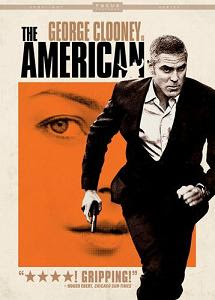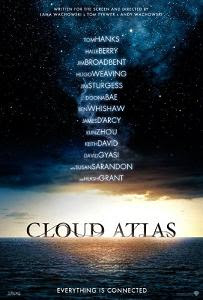
The American is a considerably slow paced drama starring women's favorite George Clooney. It's considered by some critics (including Roger Ebert) to be a very well made movie but I do not share their opinion. In fact, I think it has a number of flaws. It is definitely not a movie for everyone's taste but this is not what makes are film bad or good. The American failed to convince me its main character was really what he was supposed to be according to the major part of the film. It also failed to get my genuine involvement from the beginning. Finally, I felt the filmmakers had tried to replace the movie's lack of qualitative content with beautiful scenery shots and excessive nudity but somehow this mix didn't work for me.
The American, Jack or Edward (George Clooney), is a skillful assassin who is also good at making high-grade weapons. When an assignment in Sweden goes wrong and he loses the woman he is involved with, Jack meets Pavel (Johan Leysen), the man he works for, in Italy. Pavel sends Jack in a small countryside village and further assigns him a job specified by Mathilde (Thekla Reuten). The job is to construct a weapon and Jack wants this to be his final assignment from Pavel. Meanwhile Jack under the name of Edward becomes a friend of local priest Father Benedetto (Paolo Bonacelli) and begins a relationship with local prostitute Clara (Violante Placido). At the same time someone wants Jack dead.
It's obvious that the film tries to represent the American as an expert and impenetrable assassin. The problem is (possible spoilers ahead) we see Jack making a professional mistake in Sweden. Whether it is his first we do not know. Instead of trying to correct it, we see Jack making several new relationships immediately after he arrives in Italy. And these do not involve only women but also other locals. Furthermore, it's hard to believe that a skilled killer is going to walk alone across empty streets leaving his back fully uncovered while expecting something bad to happen.
Another thing not working for me was The American's slow pace. Especially in its first third the movie was extremely slow and unpromising. I've been wondering whether anything will occur at all.
I've read Roger Ebert pays a huge attention to two words, "Mr. Butterfly", in his review of The American. He says they are spoken by the wrong person only once and that this detail of the movie is crafted very well leading him to exaltation. Well, it could be I've missed that great scene but I think it's more likely people are looking for something splendid yet not existing in this film. If we take Ebert's example, only two women in the movie articulate the phrase “Mr. Butterfly”. First, neither of them uses these words only once. Second, both of these women have very good reasons to pronounce the words at every single occasion they do it. Sometimes, we can even assume they have more than one feasible reason. It's easy to consider Clara or Mathilde to be the wrong person but it's hard to put any huge significance in their use of "Mr. Butterfly".
Indisputably, the movie has its good moments. It shows beautiful Italian places and villages. It's nice to see Michele Placido's daughter, Violante, in the role of Clara. George Clooney is cool as usual and makes a decent restrained performance. The final shot of the film is great and symbolic. And it has a butterfly in it. But these moments were not enough for a captivating movie. For me, The American was not convincing and its second half was not strong enough to override the boring beginning.




